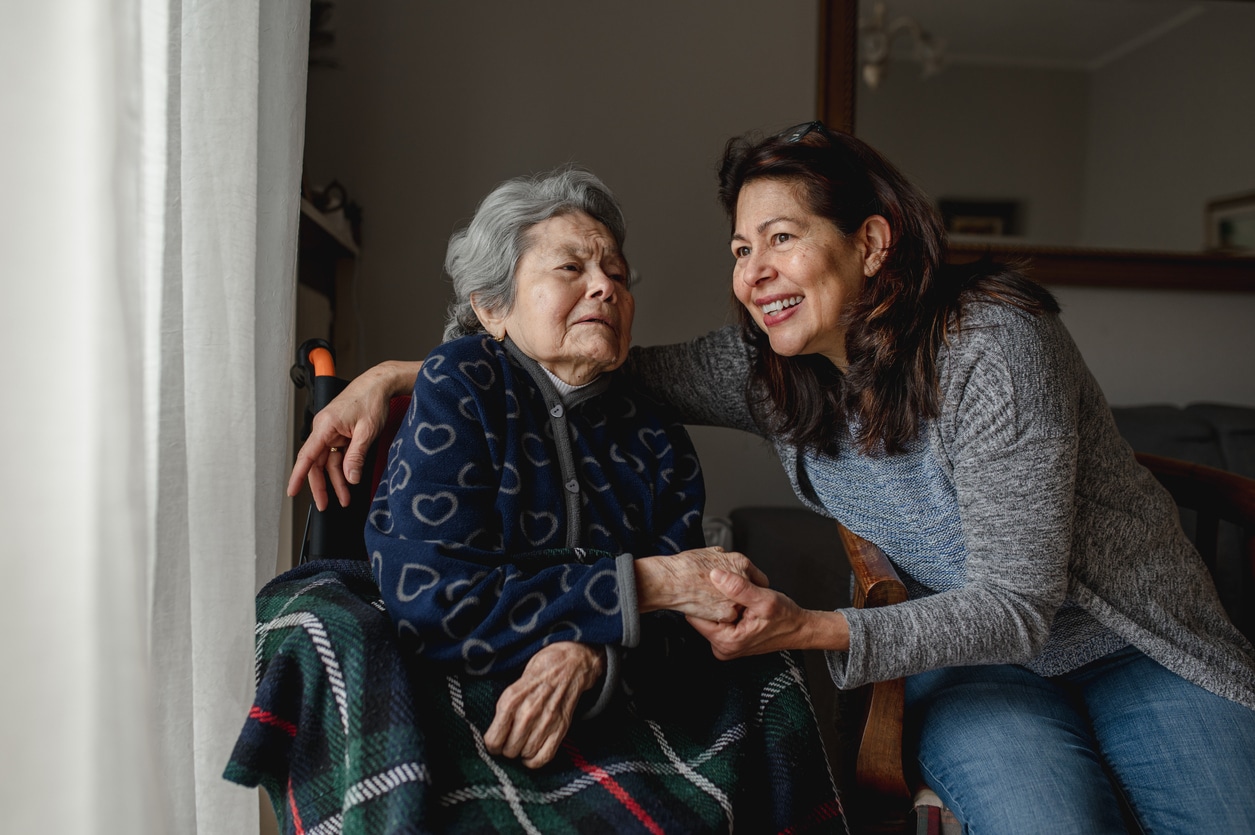An estimated 34 million Americans are involved in providing care to an older family member or friend. Caretaking duties can range from periodic monitoring to providing every aspect of basic living needs such as feeding, dressing, and bathing. While caregivers often find joy and satisfaction in caring for a loved one, the responsibilities of caring for a senior can also take their toll. Finding caregiver support is one way to alleviate the stress and frustration that can come with caregiving. Connecting with other caregivers can provide the aid, friendship, and comfort that caregivers need to cope.
What Type of Caregiver Support Can Help Caretakers?
Studies show that caregivers frequently report extreme emotional distress related to their caretaking duties. The stress can stem from the additional time and expense of caring for a senior as well as the impact caregiving has on work, families, and personal relationships. Often, caregivers also feel guilt and anger from the added pressure and responsibilities of caring for a senior.
Finding other caregivers to share experiences with can help you realize you’re not alone. Connecting with other caregivers also enables you to share ideas, feelings, and suggestions of how to manage the stresses of caretaking. Such support systems can act as a form of therapy for caretakers as well as a much-needed sounding board. Caregiver support options include:
Online support groups
There are many types of online discussion groups and boards for caregivers. These online boards allow caretakers to post questions, submit answers, and share experiences with other caregivers. The Family Caregiver Alliance of the National Center on Caregiving provides a list of online groups for caregivers, as does the AARP.
Local caregiver support groups
Physical support groups offer caretakers the opportunity to meet other caregivers in person, plan outings, and provide more intimate assistance and support. The Alzheimer’s Association provides a map of resources where caregivers can find local support groups. The US Department of Veteran Affairs also has a caregiver support group locator by state.
Telephone hotlines:
Helpful support by phone can give caregivers instant advice, guidance, and comfort when they need it most. Some helpful phone numbers are:
-
- AARP Caregiver Support Line: 1-877-333-5885
- VA’s Caregiver Support Line – 1-855-260-3274
- The Alzheimer’s Association 24/7 Helpline 1-800-272-3900
Seeking Out Support Brings Relief to Caregivers
Finding other caregivers can provide a world of solace to stressed and overwhelmed caregivers. A good listener who understands what you’re going through can make you feel validated and understood. In addition, ideas and helpful guidance from other caregivers can help improve your own caretaking situation and lead to better managing of caregiving challenges.
It may be challenging for caregivers to take a step back and think of themselves when it comes to caregiver distress. However, locating a caregiver support system may not only help you, but also enhance your ability to care for your loved one.




